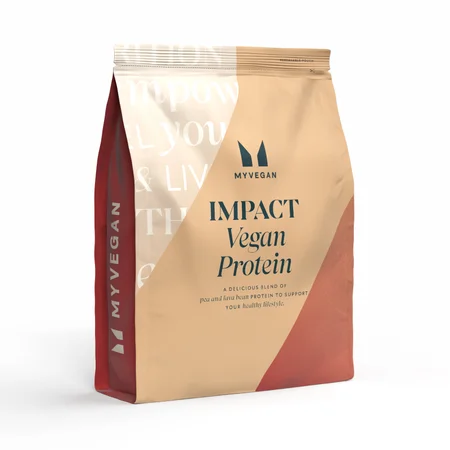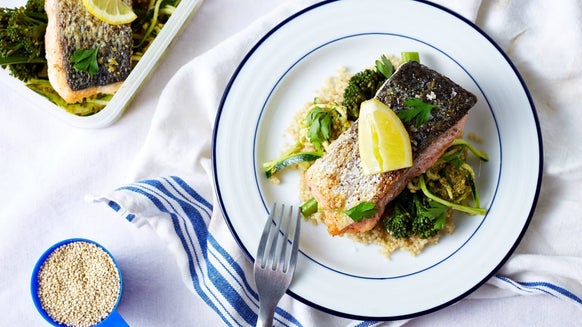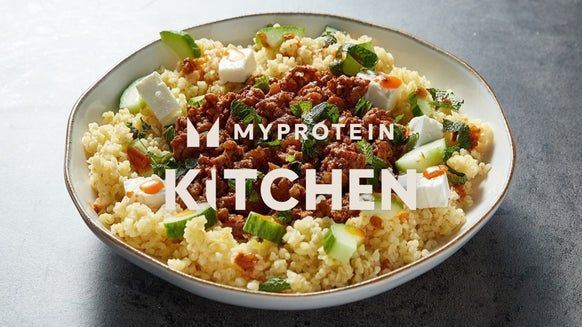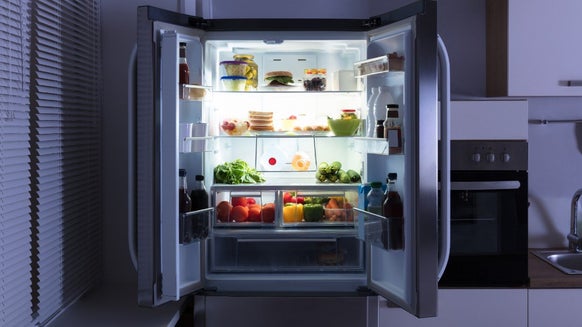Are Protein Shakes Good Or Bad For You? | Myths & Facts
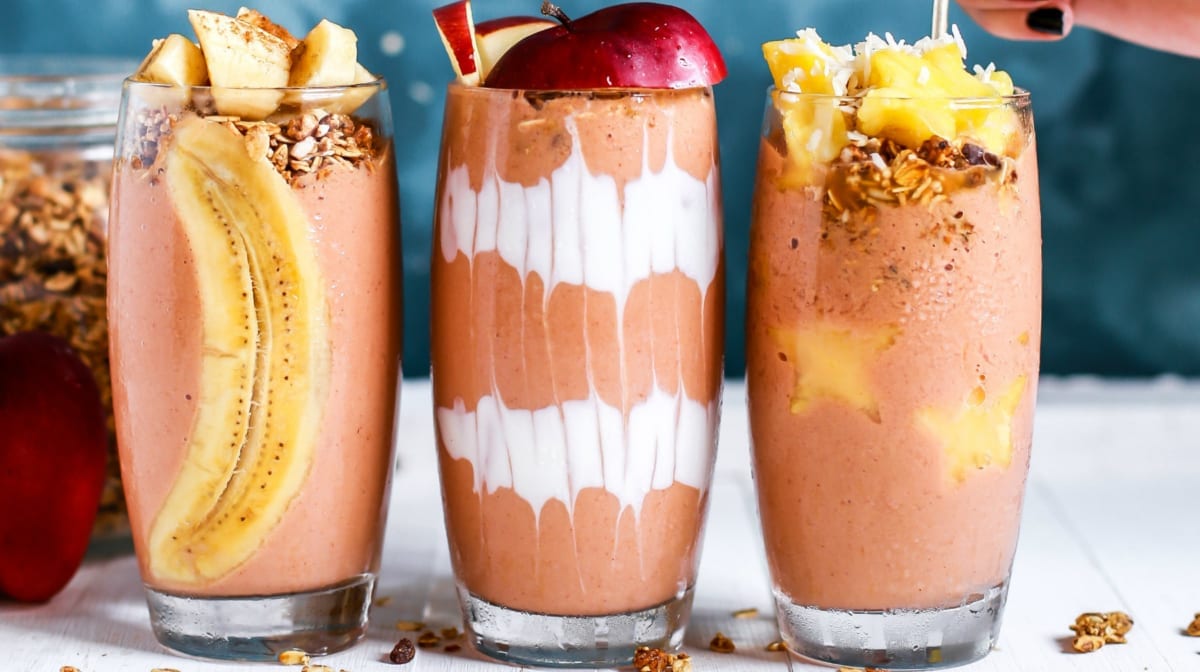
Before you start on the shakes, there are probably some questions that you want answering, such as “Are protein shakes good for you?” and “Do I really need them?”. It can be hard to get the exact information you need, so we’re here to help you out.
Most people consume protein shakes to increase muscle mass and strength, and to improve physical performance. Here, we examine the way that protein shakes work, whether they are good for you, and debunk some common myths about this popular post-gym drink.
In this article, you'll find:
- Are Protein Shakes Good For You?
- How Do Protein Shakes Work?
- Common Myths About Protein Shakes.
- FAQs About Protein Shakes.
- Common Mistakes.
- Side Effects.

Are Protein Shakes Good for You?
How Do Protein Shakes Work?
Protein shakes provide extra dietary protein to help build muscle after exercise, and prevent loss of muscle during weight loss or due to the aging process.
When you consume a protein shake after a workout, you’re providing the nutrition building blocks your muscles need to recover and rebuild.

Common myths about protein shakes:
1. Protein shakes will make me bulk up
Those who want to add mass might do that with protein shakes - but only as a part of a higher calorie diet and intense exercise regimen.
Protein shakes can be useful for weight loss, weight maintenance, or weight gain - it depends on the other factors in your lifestyle.
If you're looking to use protein shakes to help you bulk up, try our Gainer Blend.
2. Protein shakes are tough on the body
People used to think that protein was tough on the digestive system and kidneys, but today’s protein shakes are so well researched and designed to support health, not harm the body. Used as directed protein shakes are completely safe.
3. Protein shakes are only for after heavy lifting workouts
Protein shakes are designed to help muscles rebuild and repair - which is obviously needed after heavy lifting, but also beneficial after lower intensity workouts like bar or yoga, or cardio training.
4. Protein shakes are not for rest days
Try our 15 high protein shake recipes if you're stuck for inspiration.
FAQs About Protein Shakes
Who are shakes good for?
Protein shakes are clearly beneficial for athletes and those who work out to build muscle, lose weight, or increase endurance.
When it comes to weight loss, protein shakes can even be a highly convenient way of maintaining a high protein diet without unwanted calories.
They can be made simply from water and a powdered protein supplement, making them very convenient for people on the go with busy lifestyles. Other people who may benefit from protein shakes are those who don’t have time to consume a full meal and need a protein source on the go, or those who are strict vegans or vegetarians, who may struggle to get enough protein from their diet alone.
Do protein shakes fill you up?
Those that are higher in calories will be more filling than a low calorie or sugar-free version. You can always increase the calories of your shake (and protein levels too) by mixing it with milk instead of water.
Do they make you fat?
Protein shakes may not be something you need to consume every day. Just like any other source of calories, consuming more than you burn will lead to weight gain in the long run. If your food already contains a lot of protein and calories, and you consume extra protein shakes that aren't really necessary, you may gain weight.
If weight gain is your goal, protein shakes can be a lower-fat and lower-carb option (based on the supplement you choose) to help you gain lean mass instead of fat.
Do they make you bloated?
Protein shakes in general probably won’t make you feel bloated, but it might be a side effect of other ingredients in your shake or your diet.
Many high protein products also contain extra fibre to help you feel full, which can cause gas and bloating, so if this is a concern for you, opt for a protein shake without added fibre.
Do shakes go off?

Common mistakes
1. Timing
While it used to be thought that you had to consume your shake within 30 minutes after a workout, research now shows that there are benefits of a higher protein intake up to 24 hours after your workout.
So, whilst consuming your shake shortly before or after your workout still provides your body with those necessary building blocks to help your muscles build and recover, you can change the timing of your shake based around your meals or daily schedule.
One common mistake to avoid is consuming your shake alongside a high protein meal. Our bodies do have a limit to how much protein we can absorb at once, so it’s best to spread your protein out into 3-4 meals or snacks throughout the day.
2. Intolerance
While whey is a common type of protein powder, most of the lactose has been removed, so those who are lactose intolerant should be able to drink most whey proteins.
However, if you have an allergy to milk or to another type of protein source, it’s best to avoid choosing a supplement made from those ingredients.
If you’re not sure about a possible intolerance, start with a small dosage and see how you feel before increasing the amount of the shake you consume.
3. Quantity: How much is healthy?
The International Society of Sports Nutrition recommends about 0.25 grams of protein per kilogram of body weight per serving of protein, or 20-40 grams in one shake or meal for active athletes.
Our bodies can’t absorb or use more than this amount at once, so extra would be stored as fat. Daily protein shakes have been shown to be safe in generally healthy adults.
4. Using shakes as meal replacements
Protein shakes can function well as meal replacements as long as they contain the nutrition you would consume at a normal meal time – think not just protein, but also carbohydrates and healthy fats.
Adding fruit (frozen bananas or berries) or vegetables (like spinach) can increase the volume and add healthy carbs and fibre to your shake.

Side Effects of Protein Shakes
While our kidneys play a role in processing protein, people with healthy kidneys don’t need to worry about a reasonable daily protein intake.
Take Home Message
While protein shakes have been a go-to for athletes for years, they can also be useful for weight loss and, when bulked up, as a meal replacement for people on the go.
Not just beneficial for weightlifters, shakes can also be a recovery tool for endurance athletes like runners and cyclists. Healthy adults can benefit from adequate protein, like that found in protein shakes, with few potential side effects.
Check the label on your protein shake to choose the best one to meet your goals.
Looking for some protein shake recipes?
READ THESE NEXT:

Claire is a Registered Dietitian through the Academy of Nutrition and Dietetics and a board-certified Health and Wellness Coach through the International Consortium for Health and Wellness Coaching. She has a Bachelor of Science in Biology and a Master’s degree in Clinical Dietetics and Nutrition from the University of Pittsburgh.
Talking and writing about food and fitness is at the heart of Claire’s ethos as she loves to use her experience to help others meet their health and wellness goals.
Claire is also a certified indoor cycling instructor and loves the mental and physical boost she gets from regular runs and yoga classes. When she’s not keeping fit herself, she’s cheering on her hometown’s sports teams in Pittsburgh, or cooking for her family in the kitchen.
Find out more about Claire’s experience here.

